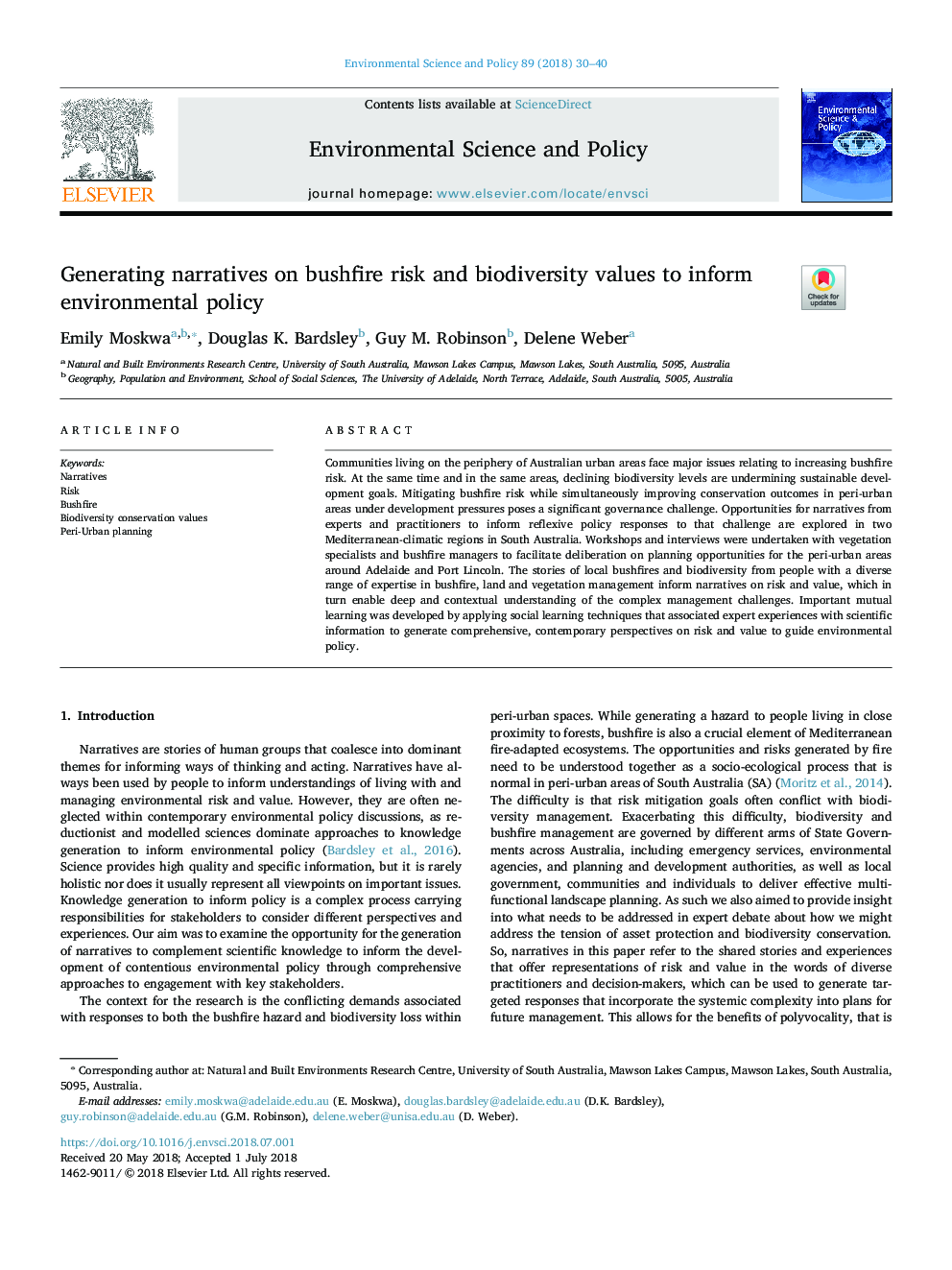| Article ID | Journal | Published Year | Pages | File Type |
|---|---|---|---|---|
| 7465614 | Environmental Science & Policy | 2018 | 11 Pages |
Abstract
Communities living on the periphery of Australian urban areas face major issues relating to increasing bushfire risk. At the same time and in the same areas, declining biodiversity levels are undermining sustainable development goals. Mitigating bushfire risk while simultaneously improving conservation outcomes in peri-urban areas under development pressures poses a significant governance challenge. Opportunities for narratives from experts and practitioners to inform reflexive policy responses to that challenge are explored in two Mediterranean-climatic regions in South Australia. Workshops and interviews were undertaken with vegetation specialists and bushfire managers to facilitate deliberation on planning opportunities for the peri-urban areas around Adelaide and Port Lincoln. The stories of local bushfires and biodiversity from people with a diverse range of expertise in bushfire, land and vegetation management inform narratives on risk and value, which in turn enable deep and contextual understanding of the complex management challenges. Important mutual learning was developed by applying social learning techniques that associated expert experiences with scientific information to generate comprehensive, contemporary perspectives on risk and value to guide environmental policy.
Keywords
Related Topics
Physical Sciences and Engineering
Energy
Renewable Energy, Sustainability and the Environment
Authors
Emily Moskwa, Douglas K. Bardsley, Guy M. Robinson, Delene Weber,
